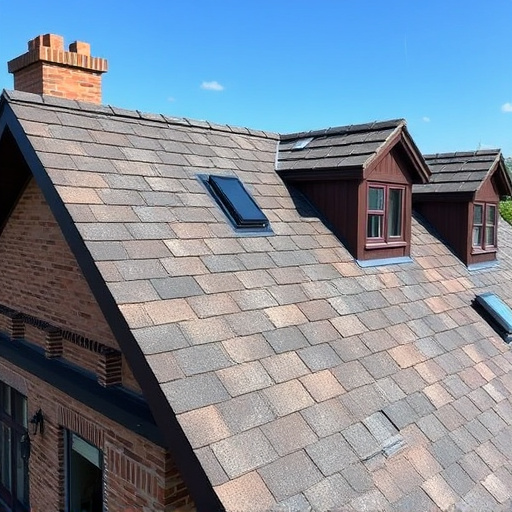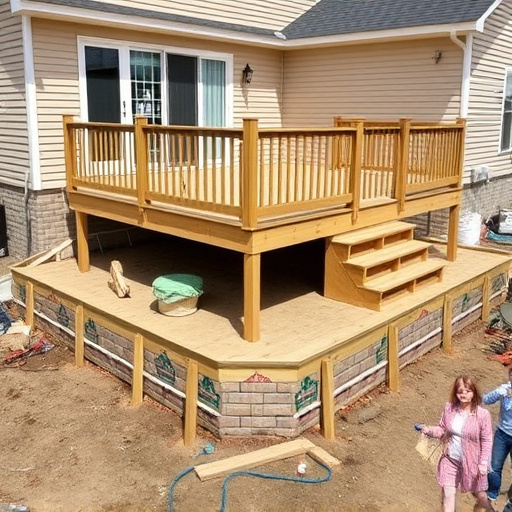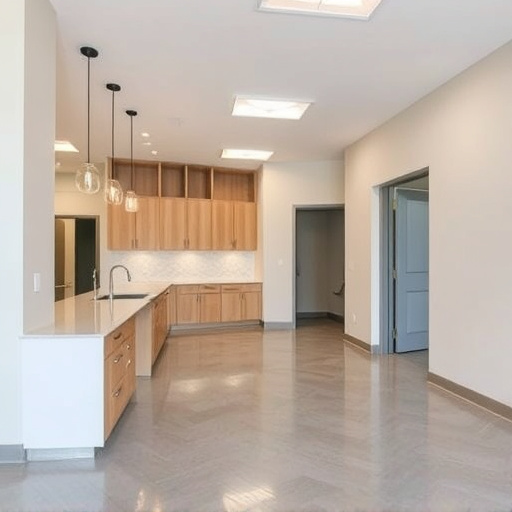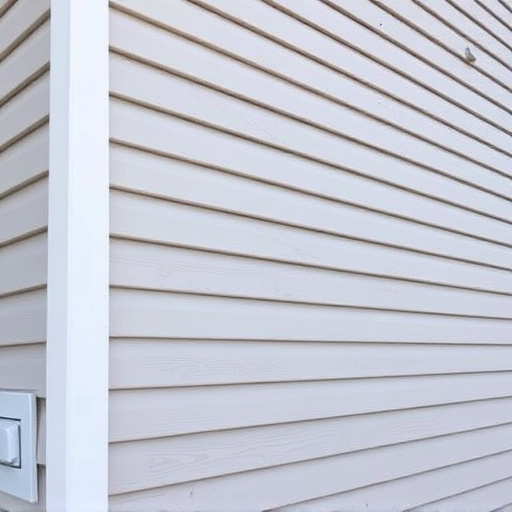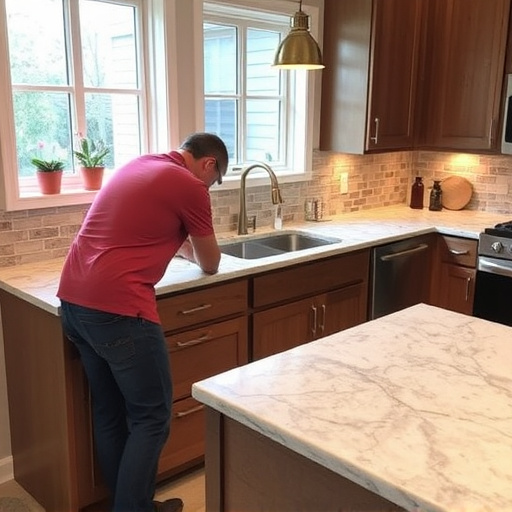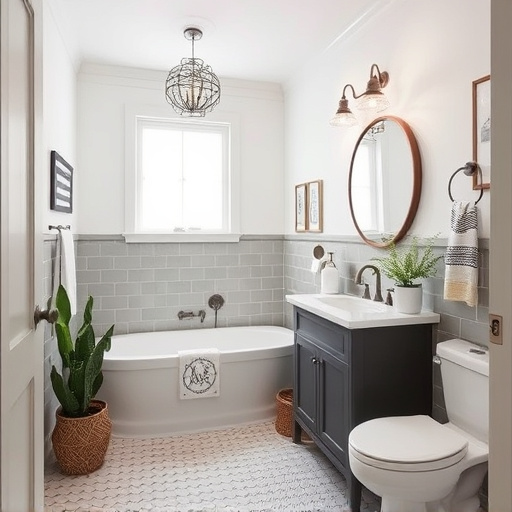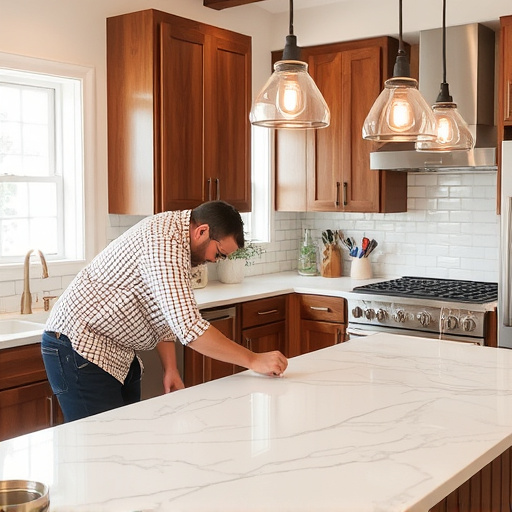Countertop install costs are driven by material choices (e.g., natural stones vs. laminate), installation complexity, labor rates, project size, edge profiles, and added features. Natural stones offer beauty but higher costs, while laminate is affordable but less durable. Solid surface materials like Corian or Silestone provide a balance. Labor costs vary based on job complexity, ranging from $50 to $150 per hour. Custom designs command higher rates. Services are offered by manufacturers or contractors, with some retailers including installation in package deals. Accurate budgeting is essential for successful home transformations and customized home renovations, especially in bathroom renovations.
“Curious about the financial commitment involved in transforming your kitchen or bathroom with new countertops? This comprehensive guide is your go-to resource for unraveling the complexities of countertop install costs. From material types that significantly impact pricing to understanding labor expenses and who provides these services, we break down everything you need to know. By the end, you’ll be equipped to make informed decisions about your countertop install.”
- Understanding Countertop Install Costs: Factors and Influences
- Material Types: Cost Implications for Your Kitchen or Bath
- Labor Expenses: Who Provides Installation Services?
Understanding Countertop Install Costs: Factors and Influences
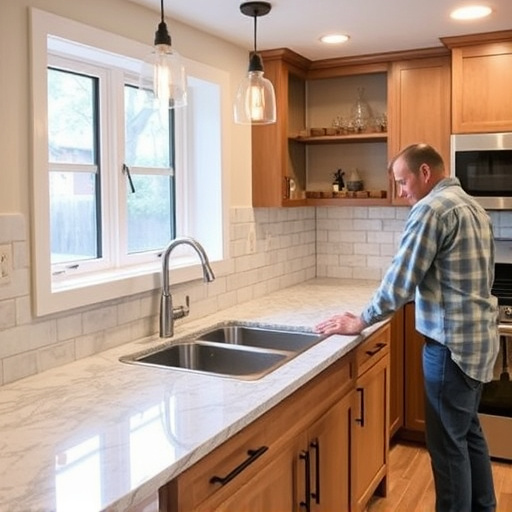
Understanding Countertop Install Costs: Factors and Influences
When considering a countertop install, it’s crucial to grasp that costs can vary widely based on several factors. Materials play a significant role; from standard laminates to luxe granite or quartz, each option carries a distinct price point. The complexity of the installation is another critical aspect; simple replacement projects are typically less expensive than custom designs involving intricate cuts and shaping. Additionally, labor rates differ across regions and contractors, impacting the overall cost.
Other influences on countertop install costs include the size and scope of the project, desired edge profiles, and any additional features like integrated sinks or backsplashes. For those pursuing home transformations or customized home renovations, especially in areas focusing on bathroom renovations, understanding these variables is essential for budgeting accurately.
Material Types: Cost Implications for Your Kitchen or Bath
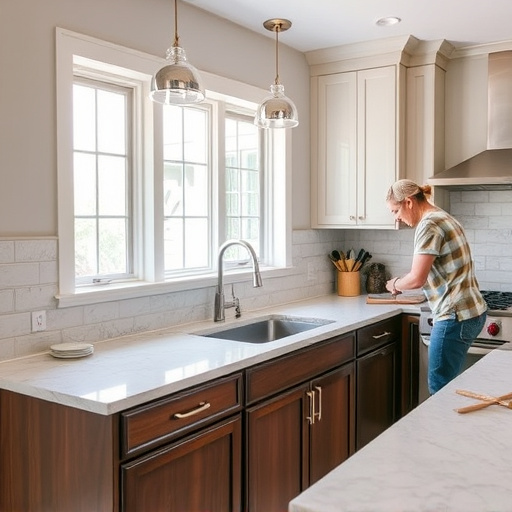
When considering a countertop install, material choice plays a significant role in determining your budget. The cost implications of different materials can vary widely, affecting both the upfront costs and long-term expenses for kitchen and bath renovations. Natural stones like granite and marble are popular due to their beauty and durability but come at a premium price compared to synthetic options. These natural materials are often imported, adding to their cost, while their maintenance requirements can also increase installation expenses.
On the other hand, laminate and solid surface countertops offer more affordable options for both residential renovations and kitchen upgrades. Laminate is budget-friendly but may be less durable and susceptible to scratches and heat damage. Solid surface materials, such as Corian or Silestone, bridge the gap between natural stone and laminates, providing a balance of aesthetics and cost-effectiveness. These materials are easier to maintain and can last for many years with proper care, making them a worthwhile investment in your kitchen or bath remodeling project.
Labor Expenses: Who Provides Installation Services?
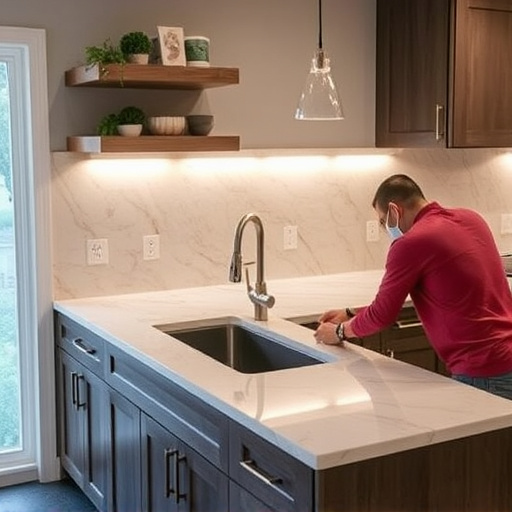
When considering a countertop install, understanding labor expenses is crucial. The cost of installation services can vary greatly depending on several factors such as the complexity of the job, type of countertop chosen, and location. Generally, homeowners can expect to pay between $50 and $150 per hour for professional installers. For straightforward projects like replacing a standard solid surface countertop in a kitchen or bathroom, labor costs may be on the lower end of this range. Conversely, more intricate tasks involving custom cuts, specialized materials, or complex layouts could command higher hourly rates.
Installation services are typically provided by either countertop manufacturers or independent contractors specializing in customized home renovations. Some retailers include installation as part of their package deals, while others offer it as an additional service at an extra cost. If you’re considering a unique or custom design that requires precise craftsmanship and tailored solutions, expect to pay more for labor. However, these investments can significantly enhance the aesthetics and functionality of your spaces, complementing your interior painting and other renovation efforts.
When considering a countertop install, understanding the multifaceted costs—from material types to labor expenses—is key. By delving into these factors and exploring the available installation services, you’ll be better equipped to navigate the process, ensuring your project stays on budget and meets your design expectations. Remember that choosing the right countertop is an investment in your home’s value and your daily comfort.


